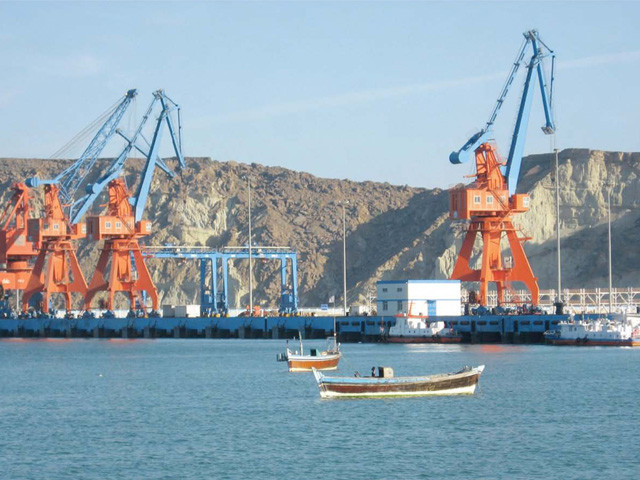Provincial autonomy: ‘Gwadar port handover breaches Constitution’
Baloch leaders argue after 18th Amendment, such matters are handled by Council of Common Interests.

Former chief minister Jan Jamali brought up the only silver lining: he hoped that thousands of jobless Baloch people would benefit from the project. PHOTO: FILE
However, a spokesperson for the Balochistan government set aside the claim that the Baloch people and Balochistan government were not consulted. He added that under the Constitution, the federal government controls ports in the country, including Gwadar Port.
He also referred to a previous statement by the provincial governor Nawab Zulfiqar Ali Magsi that he had made on the eve of the signing of the contract, where he said, “the benefits of the Gwadar Port should first be given to the people of Balochistan.”
When the 18th Amendment was made to the Constitution in 2010, the provinces were given more powers. But for matters that were important for the federation or the country as a whole, such as ports and shipping or water, a Council of Common Interests (CCI) would make decisions.

And so, the council, which consists of the four chief ministers and the prime minister, should have taken the decision on the fate of the port, argues Sajid Tareen of the Balochistan National Party-Mengal. His stand was backed by Tahir Bizenjo of the Balochistan National Party.
Baloch leaders such as themselves are now referring to Article 154 (1) of the Constitution that lists federal matters that should be taken up by the council. “Decisions on the major ports are entirely a subject in the CCI domain,” Tareen insisted. “Major ports are included in Part 11 of the Federal Legislative List. With this decision, the federal government has denied the people of Balochistan constitutionally guaranteed provincial autonomy.”
The defunct Baloch Republican Party (BRP), led by Brahamdagh Bugti, and Balochistan National Party-Awami headed by federal minister Mir Israrullah Zehri also resent the move without, what they say, taking the government of Balochistan into confidence.
“The federal government did not consider it essential to consult the Baloch people before taking this decision,” said Dr Bashir Azeem, a spokesperson for Bugti. “It didn’t even bother to seek advice from the so-called nationalists who are its ruling allies.”
On another note, many of the Baloch leaders said they apprehend serious political and strategic implications. Dr Azeem said that the federal government has once again established that it will continue to exploit the natural resources of the Baloch people for Islamabad. “The BRP will never compromise on the economic rights of the already deprived people of Balochistan,” he added.
Dr Nashanas Lehri, the media coordinator for BNP-A, added that the decision would make it more difficult to restore peace in the province.
The leaders are afraid of reprisals from major regional powers whose economic and strategic interests seem to have been threatened by the deal. But they hastened to clarify that they had nothing against China itself. The Awami National Party president in Balochistan, Aurangzeb Kasi, said, for instance, that their protest was not directed against China. They felt that this step was against the spirit of the provincial autonomy. “China, being our neighbour, has played a significant role in the development of Pakistan and Balochistan,” said Kasi. “That’s why we think that the federal government’s decision should have been taken with the support of the Baloch people.”
Former chief minister Jan Jamali brought up the only silver lining: he hoped that thousands of jobless Baloch people would benefit from the project. He said: “We are only interested in our 50% share from the profit that Islamabad will make from the port business.”
Published in The Express Tribune, March 4th, 2013.



















COMMENTS
Comments are moderated and generally will be posted if they are on-topic and not abusive.
For more information, please see our Comments FAQ